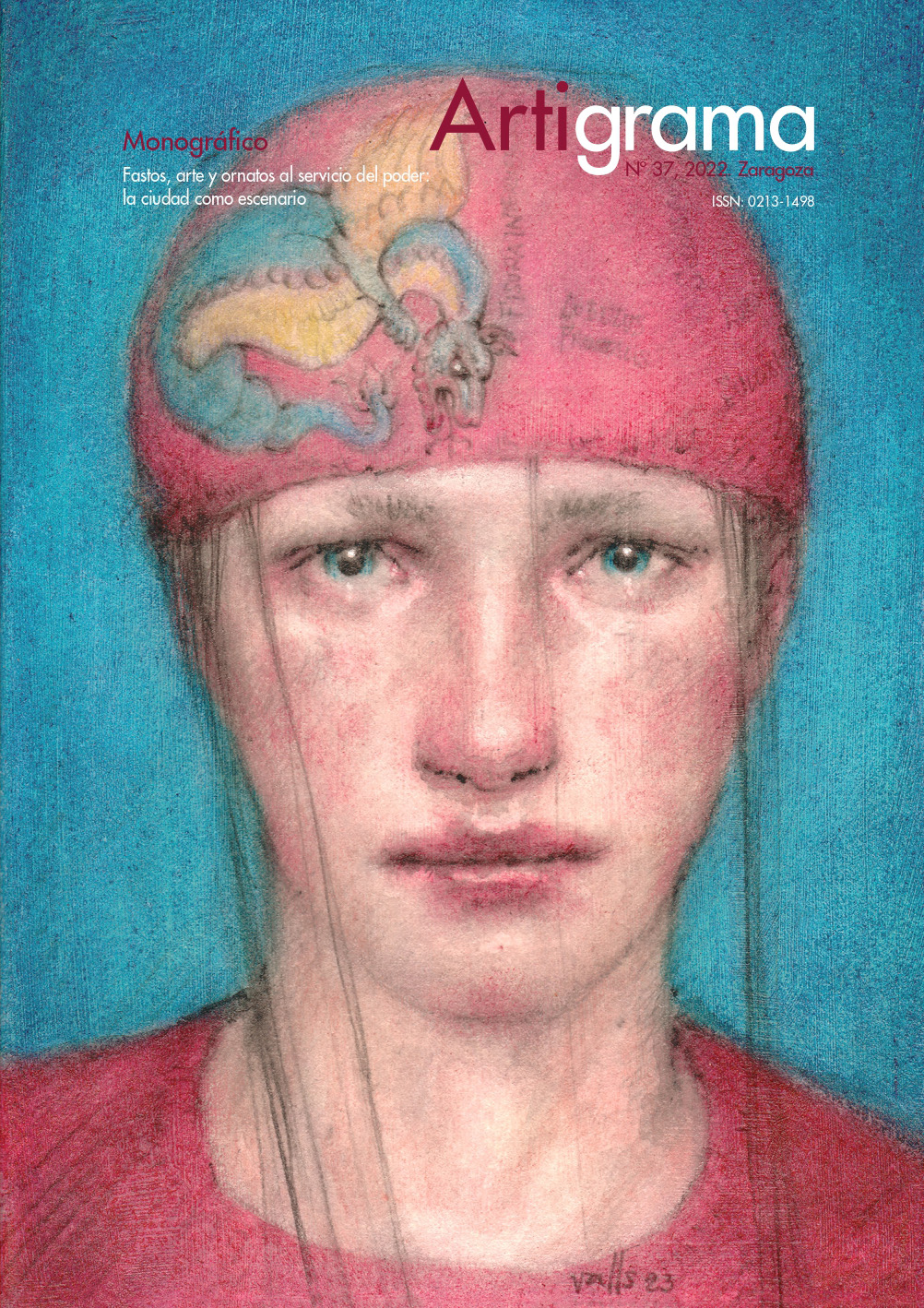La narración empática y la traducción cultural en el libro Zen en el arte del tiro con arco de Eugen Herrigel
Empathic storytelling and cultural translation in Eugen Herrigel's book Zen in the Art of Archery
DOI:
https://doi.org/10.26754/ojs_artigrama/artigrama.2022379222Palabras clave:
Kyūdō, Kyūjutsu, Shadō, Interpretación cultural, InterculturalidadResumen
Resumen
Dada la popularidad que el libro Zen en el arte del tiro con arco del alemán Eugen Herrigel (1884-1955) tuvo en la segunda mitad del siglo XX en Europa y América, esta investigación pretende entender por qué, haciendo un análisis profundo, también desde las críticas recibidas. Estudiar el contexto histórico y cultural en el que se gestó ha resultado fundamental. Descubrir la enculturación llevada a cabo por Herrigel, y releer la obra desde la traducción cultural y la narrativa empática son algunos de los aspectos investigados. A la luz de los resultados nos preguntamos si la obra seguirá teniendo validez y encontrando ávidos lectores. La metodología empleada ha tenido en consideración tanto la interpretación cultural del punto de partida, Japón, como del contexto de llegada, los lectores europeos y americanos.
Abstract
Given the popularity of the book Zen in the Art of Archery by the German Eugen Herrigel (1884-1955) in the second half of the 20th century in Europe and America, this research aims to understand why, by making an in-depth analysis of it, including the criticisms it received. It was essential to study the specific historical and cultural context in which it was created. Discovering the enculturation carried out by Herrigel, and rereading the work from the perspective of cultural translation and empathetic narrative are some of the aspects investigated. In the light of the results, we wonder whether they will prevent this book from continuing to be valid and find avid readers. In my approach the methodology of my work has always been based on taking into consideration both the cultural interpretation of the point of departure, Japan, and the context of arrival, the European and American readers.
Keywords
Kyūdō, Kyūjutsu, Shadō, Cultural interpretation, Interculturalism.
Descargas
Referencias
ALGEO, A. S., "Beatrice Lane Suzuki and Theosophy in Japan”, Theosophical History, 11, 3, 2005, pp. 3-16.
BAAS, J., Smile of the Buddha: Eastern Philosophy and Western Art; From Monet to Today, Berkeley, University of California Press, 2005, p. 144-157.
CABAÑAS P., “China, Japón y el arte contemporáneo en Europa y en España”, en El Principio Asia. China, Japón e India y el arte contemporáneo en España (1957-2017) (catálogo de exposición), Madrid, Fundación Juan March, 2018, pp. 52-73.
CABAÑAS P. y ARIAS M. R., Zen, tao y ukiyo-e, Gijón, Satori, 2020.
CARINI, C. E., Etnografía del budismo zen argentino: ritual, cuerpo y poder en la recreación de una religión oriental (tesis de maestría), Universidad Nacional de La Plata, 2011.
FAURE, B., Chan Insights and Oversights: An Epistemological Critique of the Chan Tradition, Princeton, NJ, Princeton University Press, 1996.
GALVIS, R. I., “Las neuronas espejo y el desarrollo de la empatía frente a la agresión y el conflicto en la escuela”, Praxis Pedagógica, 15, 2014, pp. 43-53.
JARAUTA, F., “Poéticas del límite: Chillida y Valente al encuentro”, Escritura e imagen, 10, nº especial, 2014, pp. 347-350.
KEEN, S., Narrative Form: Revised and Expanded Second Edition, London, Palgrave Macmillan, 2015
KEENAN, J. P., “The Limits of Thomas Merton's Understanding of Buddhism", en Bowman, B. (ed.), Merton and Buddhism: Wisdom, Emptiness, and Everyday Mind, Thurston Louisville, Fons Vitae, 2007, pp. 118-136.
KONÉ, A., “Zen in Europe: A Survey of the Territory”, Journal of Global Buddhism, 2, 2001, pp. 139-161.
LA BELLA, G. (ed.), Pedro Arrupe, general de la Compañía de Jesús: nuevas aportaciones a su biografía, Bilbao, Ediciones Mensajero, 2007.
MAR, R. A. y K. OATLEY, “The Function of Fiction is the Abstraction and Simulation of Social Experience”, Perspectives on Psychological Science, 3, 2008, pp. 173-192.
MCMAHAN, D., The Making of Buddhist Modernism, Oxford, Oxford University Press, 2008.
MIALL, D. S., “Neuroaesthetics of Literary Reading”, en M. Skov & O. Vartanian (eds.). Neuroaesthetics, Amityville, NY, Baywood Publishing, 2009, pp. 233-247.
MILLET-GIL, D., “Daisetsu Teitarō Suzuki ‘El Zen de Suzuki’”, The University of Hong Kong, 2020, pp. 1-5. DOI: 10.13140/RG.2.2.26407.37287.
PEARLMAN, E., Nothing & everything: the influence of Buddhism on the American avant-garde, 1942-1962, Berkeley, Evolver Editions, 2012.
ROWELL, M. (ed.), Joan Miró. Escritos y conversaciones, Valencia-Murcia, Institut Valencià d´Art Modern, Colegio Oficial de Aparejadores y Arquitectos Técnicos de la Región de Murcia, 2002.
SÁNCHEZ, A., “Meditación sobre el arquero”, Cuadernos Hispanoamericanos, 734, 2011, pp. 11-17.
SHIBATA, “Die Ritterliche Kunst des Bogenschiessens”, Zeitschrift fur Japanologie, 2/4, 1936, pp. 193-212.
SUZUKI DAISETSU, “Introducción”, en Herrigel, E., Zen en el arte del tiro con arco, Buenos Aires, Kier, 1999, pp. 9-13.
TRUJILLO DENNIS, A., “La difusión de la cultura japonesa en Argentina y México en el siglo XX y la figura de Sakai Kazuya”, en Japón en español. La difusión de la cultura japonesa a través de los libros (1868-1945), Madrid, Ediciones Universidad Autónoma de Madrid, 2023, (en prensa).
VICTORIA, B., “A Zen Nazi in Wartime Japan: Count Dürckheim and his Sources –D.T. Suzuki, Yasutani Haku´un and Eugen Herrigel”, The Asia-Pacific Journal / Japan Focus, 12, 3/2, pp. 1-52, https://apjjf.org/2014/12/3/Brian-Victoria/4063/article.html.
YAMADA, SH., “The Myth of Zen in the Art of Archery”, Japanese Journal of Religious Studies, 28, 1-2, 2001, pp. 1-30.
YAMADA, SH., Shots in the Dark. Japan, Zen, and the West, Chicago, The University of Chicago Press, 2009.
Descargas
Publicado
Número
Sección
Licencia

Esta obra está bajo una licencia internacional Creative Commons Atribución-NoComercial 4.0.


